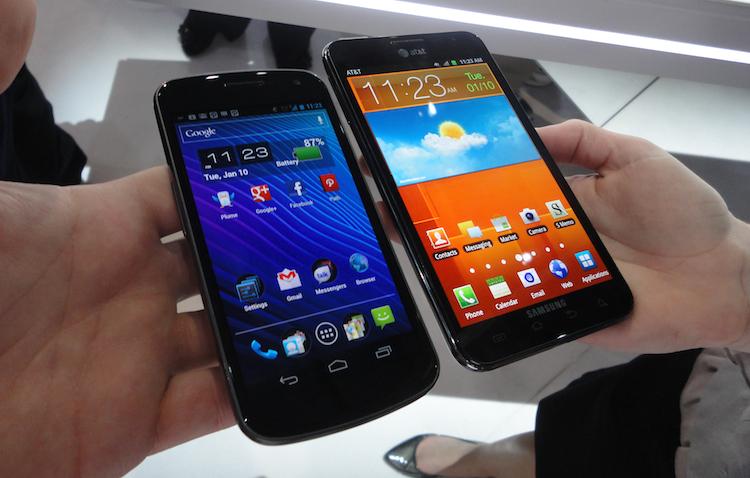
Phones come and go faster than they ever have before. It seems almost as if a new phone is launched every couple days in today's market. The DROID RAZR MAXX launched just three days ago, so a new phone should be due in the next few hours and its successor is probably only a few weeks ahead.
Okay, maybe it's not that bad. But I'm only just exaggerating. Phone launch schedules have gotten out of hand as of late, and carriers and OEMs alike have created a nasty case of cannibalism amongst their own devices in the mobile world. That's why manufacturers like HTC have set sights on fewer devices in 2012, placing quality over quantity ... finally. This is both good and bad, depending on how you look at it.
There are some obvious benefits, like higher quality devices (obviously) and less of a chance that your phone is outdated by the time you get your hands on it. If nothing else, you can feel comfortable with your phone for at least a few extra months without feeling like your phone is last year's tech. That is, if more manufacturers than HTC hop on the quality bandwagon.
However, there are likely going to be some problems caused by fewer phones being made, especially for sites like ours who review new phones. There will be fewer new devices to choose from when it's time for an upgrade and there is a larger chance that no single device meets all of your wants and needs.
But the bigger issue here is a problem that already exists and may only get worse: exclusivities.
Currently, mobile manufacturers generally create two flagships per year. Sometimes, they will launch it on more than one carrier – possibly under a different moniker and with slightly different specifications. For instance, Samsung has released the Galaxy S II in a special variant on all major carriers in the US except for Verizon. On AT&T, it comes in two variations: the Galaxy S II and Galaxy S II Skyrocket. (Eventually, the Galaxy S II Skyrocket HD will launch.) It launched on Sprint as the Galaxy S II, Epic 4G Touch, and it made its way to T-Mobile simply as the Galaxy S II. Every variant has slightly different specifications, but is of the same family of devices. HTC also launched multiple similar phones on all four major carriers, the Vivid on AT&T, Amaze 4G on T-Mobile, EVO 3D on Sprint and Rezound on Verizon.
Every now and then, however, they will launch a flagship and only bring it to one carrier. An exclusive. A perfect example of this is the iPhone, which was exclusive to AT&T for over three years. A more recent example is the Galaxy Note, which has garnered a lot of attention and hype as of late. Over the next month or two, it will launch on AT&T as an exclusive, leaving those on Sprint, T-Mobile or Verizon who want a 5.3-inch Samsung phone out of luck.
My question is: what do you do when the phone you want doesn't launch on your carrier?
When I worked at Best Buy Mobile, it was as if every week a family would come in, pay a termination fee with their then-current carrier and switch to AT&T for the iPhone (then an iPhone 4). The same thing happened when the EVO 4G launched on Sprint and there weren't any comparable Android phones for other wireless providers on the horizon.
Since T-Mobile is the only major US carrier without the iPhone on its shelves, over one million people have purchased Apple's popular phone, unlocked it and now use it on T-Mobile. The bad part is that these people have been stuck using one of the most popular phones in the world on EDGE (or 2G) speeds. That may change in the future, but the sacrifice many people go through just to have the iPhone on T-Mobile is mind-blowing.
For someone like me, who has multiple phones and is on an individual plans, carrier hopping and carrying the device you want isn't usually too bad or expensive. But it's amazing to see how much trouble and how much money a person – or family – is willing to spend to get the phones they want.
Generally, when the phone I want doesn't appear to be coming to the carrier I'm currently using, I will try to find it no-contract and open service on the carrier it is compatible with. In the case of the Galaxy Nexus, which is only officially sold for Verizon in the US, I bought the unlocked version and popped my T-Mobile SIM card in it. If the Galaxy Note has (though unlikely, we're still not 100 percent sure) T-Mobile 3G (or even 4G) bands, I will buy it and use it on T-Mobile. If not, I've considered buying it no-contract and switching to AT&T (partially due to some issues I've been having with T-Mobile in the area I just moved to).
I'm curious, people. How much trouble and how much are you willing to spend to get the phone you want? Do you consider switching carriers? Will you use a phone on 2G (or a 4G phone on 3G), just to have it on a different carrier?